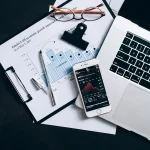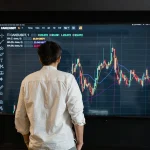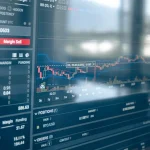The Painful Truth About Starting in Forex Trading
Stepping into the world of forex trading is exciting—until reality strikes. Many of us come into this space with dreams of fast money and financial freedom. That’s how I started. But little did I know that my first $500 would become a brutal lesson rather than a step toward wealth.

The Beginning of My Forex Journey
It all began with a few YouTube videos, some inspiring blog posts, and stories of people who claimed to turn $100 into thousands. I was intrigued. Motivated. I signed up for a demo account, practiced for a few weeks, and felt ready to go live.
“If others can do it, why can’t I?” I thought.
So, I deposited $500—money I had saved from skipping dinners out and cutting back on subscriptions—and stepped into the live markets with blind confidence.
My First Trades: When Luck Feels Like Skill
The first two trades were in profit. I made about $70. I felt powerful. Maybe this forex thing wasn’t as hard as people made it sound. I ignored the small voice in my head that said: “You don’t actually understand what you’re doing yet.”
I started risking more. Increasing my lot size. Ignoring stop losses. I was trading based on gut feeling, social media tips, and emotion. The market was starting to teach me—but I wasn’t listening.
The Fall: How $500 Disappeared in Four Days
One Friday, I decided to trade during the U.S. Non-Farm Payroll (NFP) report. I had no idea how volatile those moments were. I entered a GBP/USD trade minutes before the release. The market moved fast. Very fast. And not in my favor.
In less than two minutes, my account dropped by over 40%. I panicked. Tried to “make it back” by doubling my risk. I was chasing losses, emotional, and reckless. By the end of the day, my account balance was $7.34.
The Emotional Aftermath
That night I couldn’t sleep. I felt stupid, ashamed, and defeated. How did I let this happen? Why didn’t I follow basic rules? The truth hit me hard: I had treated trading like a casino game, not like a business.
Things I Did Wrong:
- Ignored proper risk management
- Traded without a clear plan
- Relied on emotion instead of strategy
- Used real money before gaining real skill
- Listened to random “gurus” without backtesting
What Losing $500 Taught Me
Oddly enough, that loss became the most valuable experience in my trading life. It forced me to go back to the basics. I began studying risk-to-reward ratios, technical analysis, trading psychology, and backtesting strategies. I learned that consistency beats luck, and discipline beats excitement.
Most importantly, I realized this: Forex is not a quick-money solution; it’s a long-term skill that requires patience, mindset, and education.
Lessons New Traders Must Learn
- Start with a demo for longer than you think. Weeks, not days.
- Never risk more than 1–2% of your capital on a single trade.
- Always use a stop-loss. No exceptions.
- Control your emotions. The market doesn’t care how you feel.
- Keep a trading journal. Track every win, loss, and reason behind it.
Final Thoughts: Loss Is Part of Learning
If you’re reading this and haven’t traded yet, let this be your warning. If you’ve already lost money, know that you’re not alone. Every serious trader has a story of loss. It’s part of the process.
Use every mistake as fuel to become better. Educate yourself, stay humble, and respect the market. Your first $500 doesn’t have to be a waste—if you treat it as tuition for a lifelong skill.
Have you had a painful lesson in your trading journey? Share it in the comments—we all grow by learning from each other.




